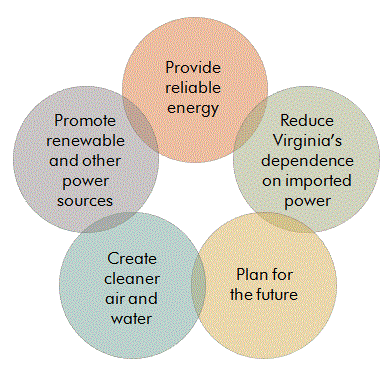How can we help you?


Rate Schedules and Special Tariffs detail the rate or charge for a particular classification of service, including all special terms and conditions under which that service is furnished at the prescribed rate or charge. When you accept electric service from Dominion Energy Virginia, you agree to certain requirements specified in the application for electric service, and you're bound by the applicable rate schedule(s) and Terms and Conditions which are currently on file with the State Corporation Commission.
Riders are charges applied to certain rate schedules to recover various costs associated with Dominion Energy's electric operations and electricity production. For example, Fuel Charge Rider A applies to a number of filed rate schedules as well as applicable energy charges specified in any special rates, contracts or incentives approved by the SCC, and it increases the price of electricity by a specified amount per kilowatt-hour (in this example, a few cents).
When you look at a typical resident electric bill from Dominion Energy Virginia, you will see a detailed summary of everything that is included in the total. (View a sample bill.) For example, you'll see a charge for the "Distribution Service," which covers the use of local wires, transformers, substations and other equipment used to deliver electricity to your home or business.
You'll also see "Electricity Supply Service" charges for the generation and transmission of electricity, including fuel.
This is divided into three sections:
There also is a Sale and Use Surcharge, State/Local Consumption Tax, and a Utility Tax in your total charges.
It costs money for Dominion Energy to produce electricity and deliver it to your home or business, and rates are set to help us cover those costs. As things change, like energy demand, fuel costs, etc., rates have to be adjusted. We have generation and transmission line projects designed to keep the power coming and going, projects to expand the use of renewable resources, and unique programs that help customers save money.
Rate Review Process:
Rates are set to help us cover the costs of producing electricity and delivering it to your home or business. However, your dollars also play a crucial role in helping us meet our commitments:
Examples of generation projects:
Examples of customer programs:
Examples of transmission and distribution enhancements:
